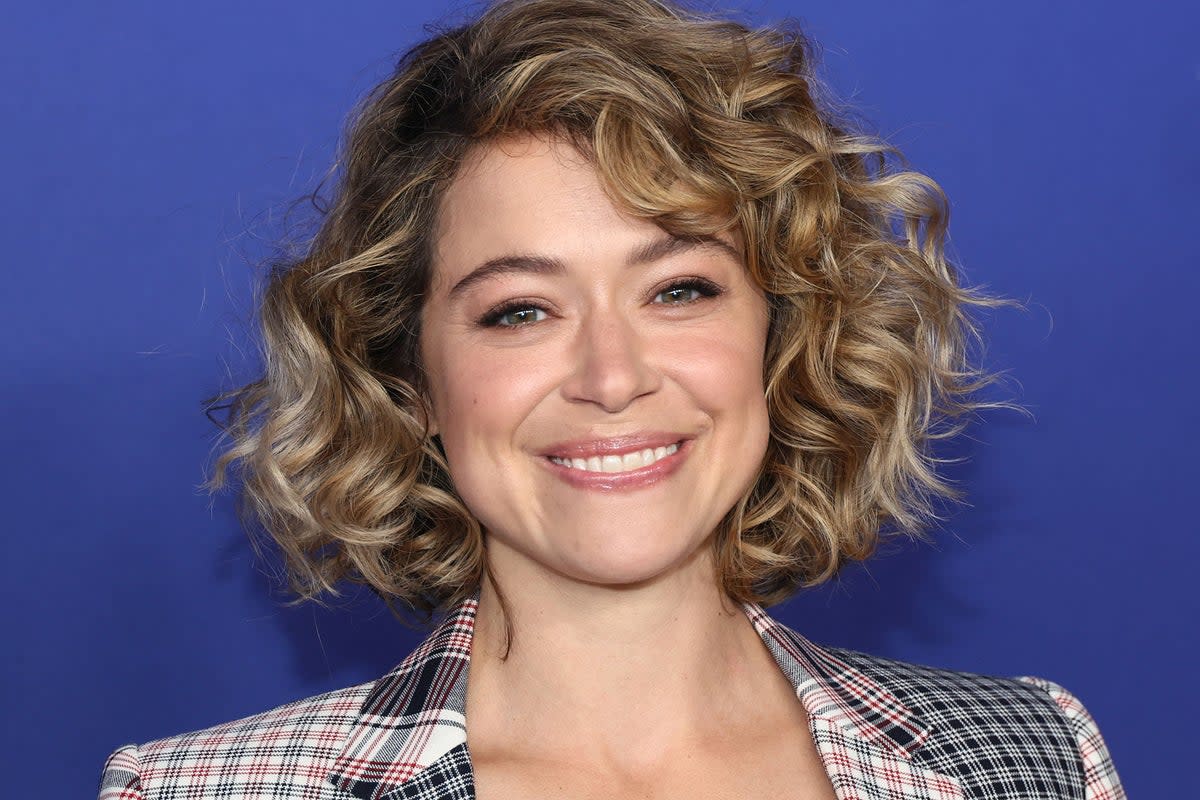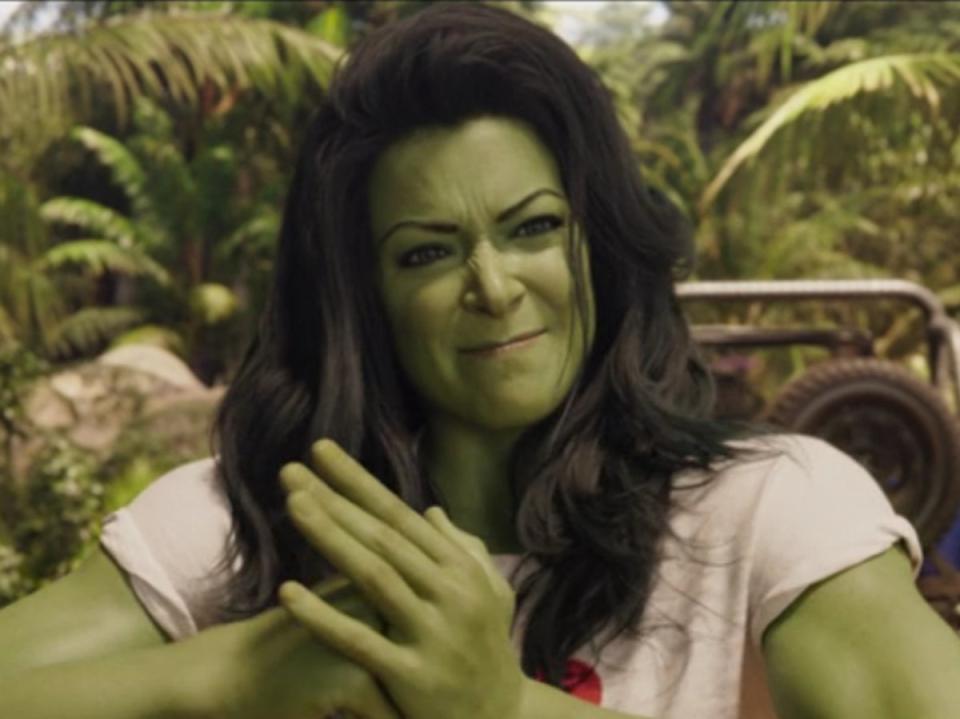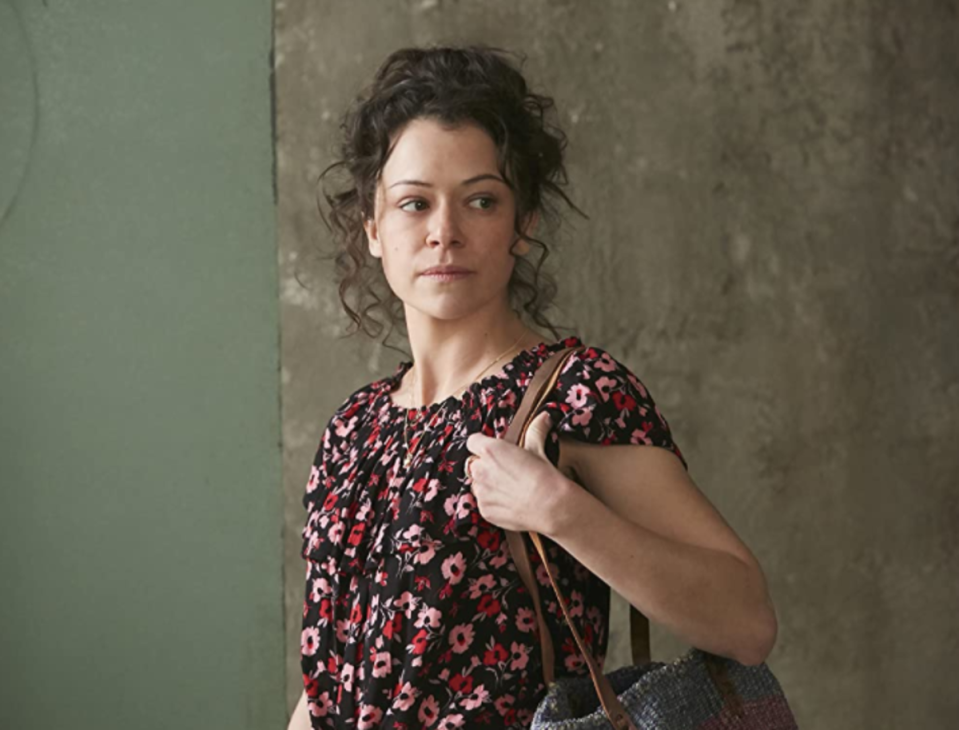She-Hulk star Tatiana Maslany on Marvel fan sexism, Mark Ruffalo and the trauma of child actors

I’m terrified of everything,” Tatiana Maslany admits. The She-Hulk star and I are on the subject of fear because, in her new animated film, Butterfly Tale, she plays a butterfly named Jennifer who is scared of heights. And just like Jennifer, the Canadian actor prefers to face her fears head-on rather than cower behind them. “I tend to push through those nerves and the fear of it, because conquering it and feeling that rush is quite exciting.”
She’s at home in Los Angeles, chatting over Zoom from her sun-drenched apartment in trendy Los Feliz. Maslany is about as far away from Hulk rage as you can imagine: she is light, funny, self-deprecating. It’s noon but she looks blurry-eyed and fresh-faced; messy brown hair falls over the hood of a cosy black sweater.
The 38-year-old has been acting for most of her life, beginning when she was just 11 years old on Canadian kids’ TV. Various small roles in film and television followed in her adulthood until she was cast as the con artist Sarah Manning and her several idiosyncratic clones in the sci-fi series, Orphan Black. It was her breakthrough. Her ability to flip seamlessly between a volatile Ukrainian cult escapee and an icy, upper-crust Brit (among many others) firmly established her as a chameleonic character actor. In one 2015 interview, it was noted that Maslany’s mother was on set watching her daughter and wondered aloud when Tatiana would be back.
The Guardian called it “Olympic-level” acting and her athletic feat was rewarded with an Emmy in 2016. “I remember having an acupuncturist work on me and she was like, ‘What do you do?!’” Maslany recalls of filming the exhausting five seasons. “Because there were all these weird, different energies coming out of my back. I don’t know what she saw but it felt true. There were all these little people living in me and I had to pull them out.”
She went on to star opposite Nicole Kidman in the neo-noir cop drama Destroyer before making her Broadway debut alongside Bryan Cranston in Lee Hall’s stage adaptation of Network at the end of 2018. She took over the role of a ruthless TV executive from Downton Abbey’s Michelle Dockery in the London production, and made it her own with a performance that hilariously reinvented a scene in which her character reaches orgasm while talking about audience shares.
Then she landed perhaps her most challenging role yet – the lead part in a Marvel TV series. Released in 2022, She-Hulk: Attorney at Law followed Jennifer Walters (Maslany) as she navigated the life of a single, thirtysomething attorney who also happens to be a green, six-foot-seven, superpowered hulk. Walters is the cousin of Bruce Banner – alter-ego, of course, of the Hulk – who’s been played by Mark Ruffalo since 2012. The four-time Academy Award nominee appears alongside her in the series and was Maslany’s Marvel chaperone. “He was one of the actors I looked at who had done work in that world but was also working on other weird s***,” she says. Ruffalo was nominated again at the Oscars this year for his supporting role in Yorgos Lanthimos’s Poor Things. “He was very kind, very humble. And I think the biggest lesson for me watching him is how new he makes everything. He’s played that character for 10 years and he still comes to it with this childlike wonder and curiosity.”
There’s this false sense of security because you’re so beloved by the people who work with you, but you’re also taught never to cross them
Despite largely positive reviews, which often singled out Maslany’s performance, She-Hulk arrived at a time of “Marvel fatigue”, with audiences complaining about the relentless output of superhero spin-offs, from Echo to Ms Marvel. Of course, it didn’t help that those projects were female-led and that Marvel’s largely male fanbase are generally not the most progressive bunch. How did she handle the inevitable wave of sexist backlash? “I think what’s exciting…” – she checks herself – “… exciting, ha. I think what’s fun about it is that [series creator] Jessica Gao built into the story that people were going to troll us.” A scene in the third episode, for example, airs fictional social media comments about Maslany’s character such as: “Why does every superhero have to be a woman now?” Sound familiar? “When we started to get the same responses that [Gao] had actually baked into the writing, it felt like part of the fun,” Maslany says.
A second season has not been announced, but chances of the actor returning to the franchise may have diminished slightly last summer when she called Disney’s big boss Bob Iger “completely out of touch”. The multi-millionaire CEO had, during the months-long Sag-Aftra strike that ground Hollywood to a halt, called the actors’ union’s demands for a fairer wage “unrealistic”. Maslany admits: “In those moments, you’re so heated up. It’s hard to articulate yourself in a way that you want when you’re on the picket line with everybody.” There’s plenty to be cross about, though. Maslany picks out the example of actors self-taping auditions from their living rooms. More often than not, jobbing actors will learn lines, film numerous takes and send off dozens of tapes without booking any paid work. She invokes the words of Olivia Colman, who called the process “disrespectful”. Maslany adds: “You send these tapes into the void, you never get responses, you never get any feedback and you’re working! You’re filming yourself and having to edit yourself, which is also the stuff that makes you so self-conscious.”

Maslany’s empathy is tangible. She wells up with compassion when I ask about how she, as a former child actor, had reacted to the revelations of Quiet on Set: The Dark Side of Kids TV – the much-talked-about new docuseries about the underbelly of abuse at Nickelodeon from the late Nineties to the early 2000s.
“It is so hard to talk about that stuff when you have grown up in it,” she says. “You’re taking cues from the adults so speaking up is something that you were never allowed to do. There’s this false sense of security because you’re so beloved by the people who work with you, but you’re also taught never to cross them… I was so blown away by their honesty, and by the fact that these kids, now adults, were able to unravel that learning and to speak.”
There has been some discussion about the responsibility of other child stars to stand by their peers and speak up. Just recently, Sunny Hostin, of chatshow The View, went as far as to question whether Ariana Grande (the pop star who shot to fame on the Nickelodeon sitcom Victorious) was “complicit” in the wrongdoings by staying silent on the matter. What does Maslany make of that? “It costs something to come forward,” she says. “I have no judgement about people who don’t speak about it. I just focus on the people who have and let their story hold the value that it has. Speaking out is re-traumatising.”

Back to Butterfly Tale and working for kids rather than as one. “I don’t do a lot of things for kids,” Maslany explains, “they’re my biggest critics! I thought kids would like this.” The film is based on the real-life migration of monarch butterflies, which travel in their drones over 3,000 miles from the Rocky Mountains of North America to central Mexico every year. In our Zoom chat, I send Maslany a video my friend Tim Kellner, a videographer, shot over three years filming the migration, which she promises earnestly to watch. Unlike the average self-tape, Maslany’s publicist sends me a response a day later: “Tatiana wanted us to pass on that she thought your friend’s short film about monarch butterflies was really beautiful and poetic, and she wanted to say thanks for sending it over.” The Marvel fanboys can whine all they like: Maslany’s all class.
‘Butterfly Tale’ arrives in cinemas in the UK and Ireland on 19 April

 Yahoo News
Yahoo News 
